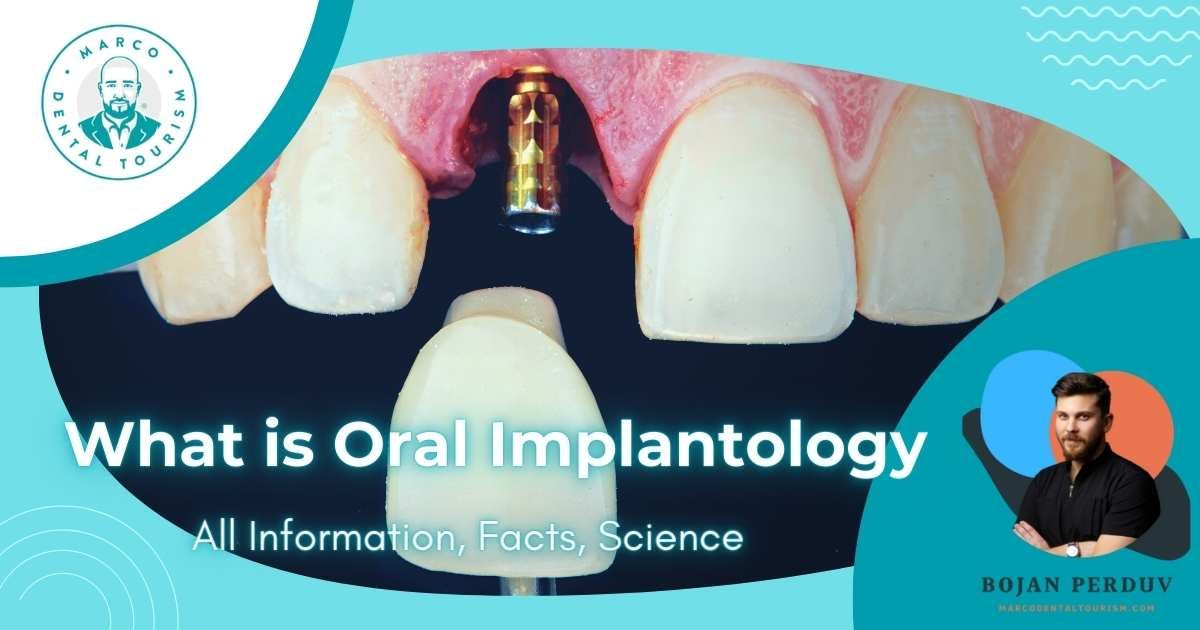
If you're looking for a comprehensive guide to oral implantology, you've come to the right place! Oral implantology is a fascinating field of dentistry that seeks to improve the quality of life of people who have lost one or more teeth due to injury, diseases of the mouth and gums or aging. From the latest advances in dental implants to post-surgical patient care, this blog will cover all aspects of oral implantology. We explore the different types of implants available, as well as the most important factors when deciding whether they are the right choice for you. We will also discuss the techniques used to place the implants and the best practices for maintaining them. Join us!
Is implantology the same as dentistry?

No, implantology is not the same as dentistry. Implantology is a specialist area of dentistry that focuses on the restoration and replacement of teeth. It includes the installation of dental implants and other treatments of damaged teeth. Dentistry is a more general field that covers all aspects of oral care and treatment.
What is oral implantology?

Oral implantology is a branch of dentistry that deals with the surgical placement of dental implants. It is a modern, minimally invasive and very successful dental treatment option. Dental implants are small titanium posts that are precisely placed in the jawbone to replace any missing teeth.
What does oral implantology deal with?

Oral implantology is a form of dental treatment that involves placing artificial teeth in the jaw to replace missing teeth. It is a very effective and popular way of restoring the natural aesthetics of a smile. Here are some treatments commonly used in oral implantology:
Placement of endosteal implants: Endosteal implants represent the most used type of implants, the installation of which involves the surgical placement of metal posts in the jawbone that serve as the basis for artificial teeth. Posts for implants are made of titanium, a biocompatible metal that has been proven to have no harmful effects on living tooth tissue. The implant serves as a replacement for the root of a missing tooth, providing a solid base for a dental prosthesis such as dental cover or crown, bridge or prosthesis.
Zygomatic implants: Zygomatic implants are a unique type of implant used to replace missing teeth in areas where the jawbone is too weak or too shallow to support other types of implants. They are held in place by a titanium screw that is inserted into the cheekbone.
Implant bridge: A dental bridge that is attached to an implant is used as a safe replacement for a large number of missing teeth.
Prostheses attached to implants: A dental prosthesis attached to an implant provides greater stability and comfort compared to traditional prostheses. After the installation of the implant, the next treatment of the patient falls under the scopedental prosthetics in order to make a suitable and comfortable denture.
All on 4 treatment: Innovative All on 4 implanti as a form of treatment, it involves the surgical placement of four titanium implants in the jawbone. Because they are designed to mimic the root of a natural tooth, the implants are placed at an angle to allow maximum contact between the jawbone and the embedded implant. Once the implants are placed, they are attached to a metal rod that holds the entire set of new artificial teeth.
Who deals with dental implantology?

Dental implantology is dealt with by dental implantologists-dentists specializing in dental implants. They are responsible for evaluating the patient's dental history, installing implants and restoring them with crowns, bridges and dentures, and also provide ongoing maintenance and care after the procedure.
When is implant treatment necessary?

An implant placement procedure is necessary when one or more teeth are lost or extracted due to plaque caries, injuries or dental diseases. Implant placement procedures are very successful and can provide a strong, permanent foundation for a restoration that will look and feel like a natural tooth.
What is the best dental implant?

Practice shows that the best titanium implant is a durable and biocompatible material that easily integrates with the jaw bone. It is shaped to fit securely in the jaw and with proper care can last for decades offering teeth a completely natural look.
What dental procedures are used in implantology?

Dental implantology is largely connected with general dentistry with the aim of joint progress and achieving the desired results. Many dental procedures serve as preparation for implant procedures. Below we list the basic dental procedures used in implantology:
Tooth extraction: This procedure involves removing a damaged or decayed tooth from the jawbone. The dentist will use specialized tools to safely remove the tooth from its socket and prepare the area for the implant.
Sinus-lift treatment: Sinus-lift treatment is a procedure that increases the height of the jawbone in the area of the upper molars and premolars. During this procedure, the sinus membrane is lifted to create space for the implant, and the jawbone is then filled with adequate bone graft material. A sinus lift procedure is necessary when the jawbone is too thin or too short to support a dental implant.
Dental restoration: Finally, after placing the implants, the next step is the placement of the dental restoration. This can be a crown, a bridge or a prosthesis, depending on the individual needs of the patient.
How to take care of teeth after installing implants?

Care of teeth after surgical intervention and installation dental implants it is a very important part of the entire recovery procedure. We suggest several useful tips for dental care after the procedure:
Maintain oral hygiene regularly: brushing and flossing at least twice a day is essential for healthy teeth and gums, especially after implant placement.
Avoid hard or sticky foods: Certain foods, such as hard candy or sticky foods, can loosen or damage the implant. We recommend eating as soft, light and cooked food as possible.
Use mouthwash or mouthwash: Antimicrobial mouthwash can help reduce ittartar on the teeth and risk of infection.
Visit your dentist for regular check-ups: Regular dental check-ups are necessary to monitor the general condition of the teeth after the intervention, as well as to keep the implants in good condition.
Avoid smoking: Smoking can increase the risk of any dental infection and negatively affect the wound healing process, so it is best to avoid it as much as possible during the recovery process.
Conclusion on oral implantology
Oral implantology is a field that is advancing very quickly and efficiently, offering many advantages to both patients and clinicians. Using the most modern technologies and treatment methods, implantology provides a safe and effective way to restore the shape and function of the mouth. With an experienced and good doctor, patients can get theirs back again and againa perfect smile while improving overall dental health. With continued advancements in the field, oral implantology will eventually become an even more important part of dental care, helping to ensure that all patients have access to the best possible treatment options.














Share your opinion!
What do you think about this topic?
Comments (0)